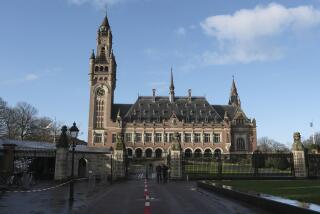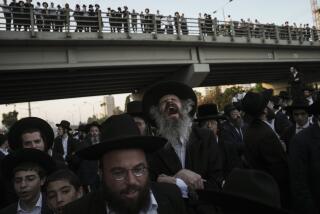How one minority group could undermine Israel’s new Jewish identity law
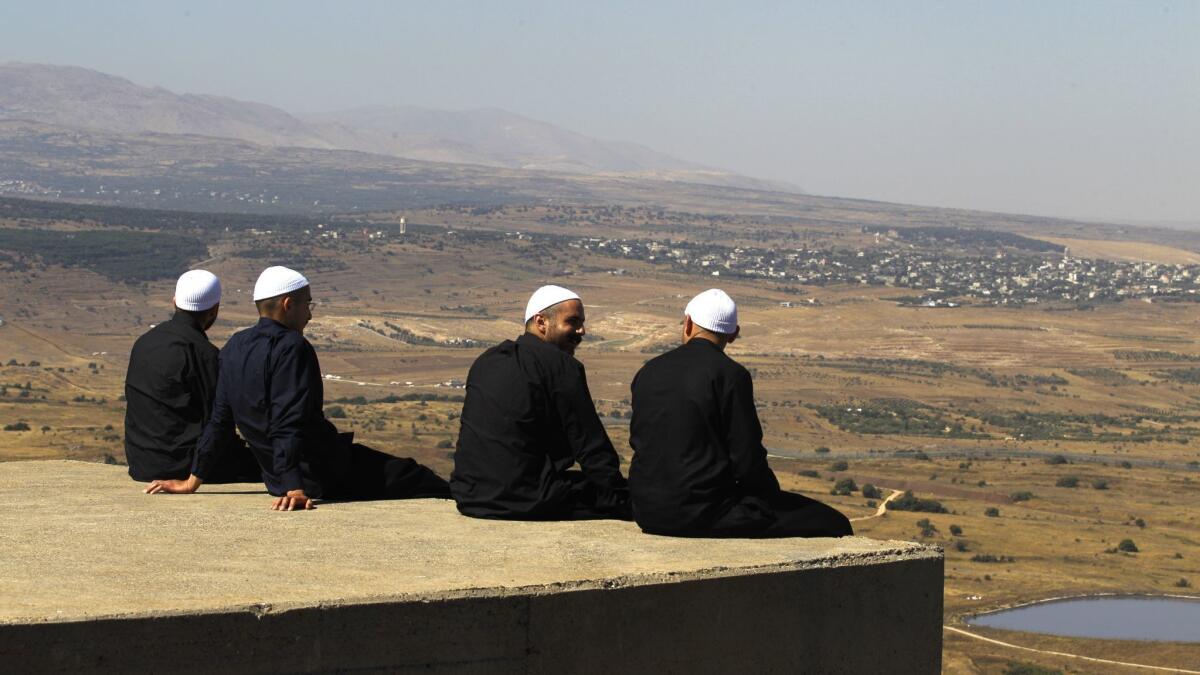
Reporting from Jerusalem — Barely a week after Israeli Prime Minister Benjamin Netanyahu won passage of a controversial measure underscoring his country’s Jewish identity, the coalition that helped him pass the legislation by a narrow margin is starting to fray.
The law defines Israel as “the historic homeland of the Jewish people,” who have “a singular right to national self-determination within it.” It diminishes the status of Arabic, which previously had equal status with Hebrew as one of the country’s two official languages but now has an undefined “special status.”
The law also asserts that “the state sees the development of Jewish settlement as a national value and will act to encourage and promote its establishment and consolidation.”
Although the law was initially applauded by most of Israel’s right wing, that began to change when hard-line Education Minister Naftali Bennett said that “the manner in which the nation-state law was enacted was very damaging” to the country’s Druze minority.
On Thursday, a group of former military chiefs of staff and commanders of elite army units took a stand against the law, and Finance Minister Moshe Kahlon conceded: “We enacted the nation-state law in a rush. We were wrong and we need to fix it.”
Here are some questions and answers about the law and the political fallout it is causing.
Why was the law passed?
The law’s advocates say it ratifies Israel’s raison d’etre as a Jewish state and as a place of refuge for Jews.
Avi Dichter, the bill’s sponsor and chairman of parliament’s Foreign Affairs and Defense Committee, explained: “With this law we determined the founding principle of our existence. Israel is the nation state of the Jewish people and respects the rights of all of its citizens.”
Justice Minister Ayelet Shaked, another backer, said in a radio interview that the law “just states what we already know: Israel is the state of the Jews.”
So why bother?
That’s one of the questions being asked by the law’s opponents — parties in the center and left of the political sphere who are Netanyahu’s political foes. But their concerns go well beyond that. Netanyahu’s attorney general cautioned that it could have negative “international repercussions” for the country. His concerns, among others, caused the bill’s most contentious language to be dropped.
Ahmad Tibi, a veteran lawmaker representing the largely Arab Joint List party, accused Netanyahu of passing “an apartheid law.”
The party’s chairman, Ayman Odeh, said that “the state has declared that it does not want us here,” adding that it had approved “a law of Jewish supremacy and told us that we will always be second-class citizens.”
Many American Jewish organizations decried the law. The American Jewish Committee, among the most influential and mainstream of U.S. Jewish groups, said that it was “deeply disappointed” by the law’s passage, and that it “puts at risk the commitment of Israel’s founders to build a country that is both Jewish and democratic.”
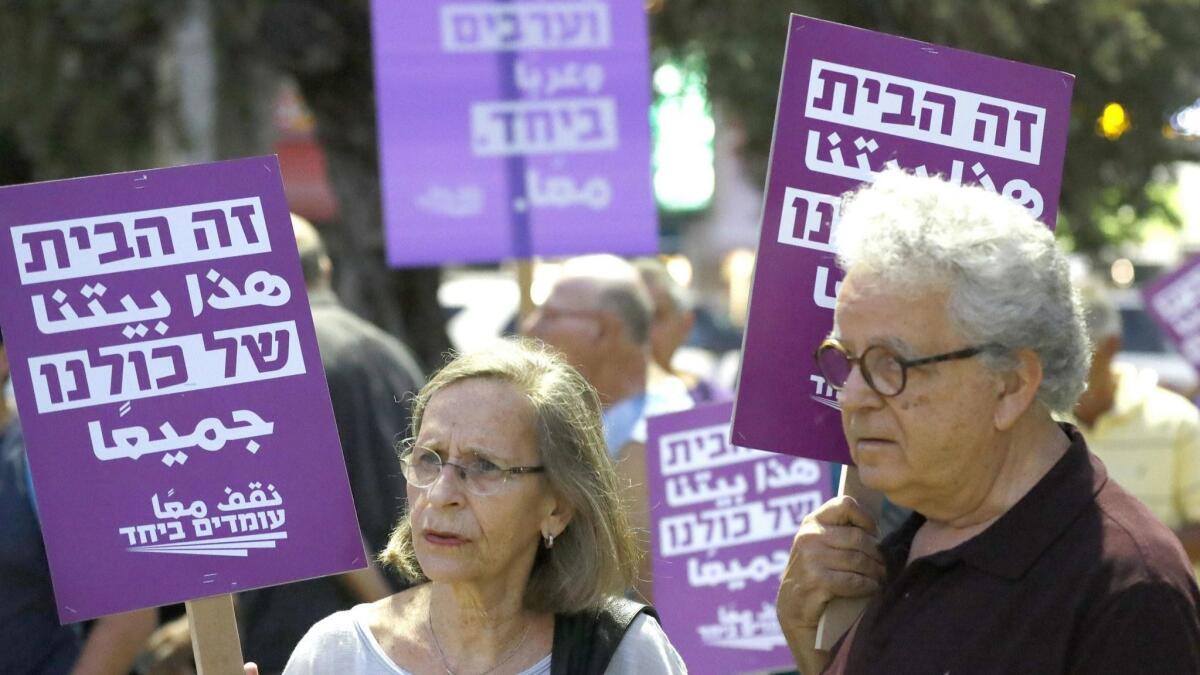
What has changed?
There has been an uprising within the Druze community, which comprises Arabic-language speakers who follow a monotheistic Middle Eastern religion and serve in the Israeli army.
The Druze, a minority within Israel’s 20% Arab minority, number about 150,000 out of the nation’s population of 8.5 million. They hold important political positions and are renowned for their loyalty for the state.
In the first legal challenge to the law, three Druze members of parliament filed a petition with Israel’s Supreme Court on Sunday to strike down the law.
On Wednesday, more than 100 Druze reserve officers of the Israel Defense Forces, including several generals, announced the formation of a forum to fight the law.
“Having built this home together with Jews, the nation-state law excludes the Druze community from that home and leaves us outside,” said Brig. Gen. Amal Asad.
Citing the allegiance of Druze soldiers even before the establishment of Israel in 1948, he said that “for some reason the Druze community has been left behind. I’ve served for this country in the IDF for 26 years, and I have the right to demand for it to be mine exactly as it is yours.”
The forum has announced a protest rally to take place next weekend in Tel Aviv’s Rabin Square.
The anger is not limited to military figures. Rafik Halabi, a news anchor-turned-mayor of Daliyat al Karmel, a Druze city in northern Israel, said the matter is existential. “This is the struggle for Israeliness. I am in favor of a state of Israel that treats equally each of its citizens. This is a discriminatory, harmful law that needs to be canceled.”
How are Israelis reacting to their demands?
The strains in Netanyahu’s coalition are showing. In recent years, the prime minister’s right-wing Likud party, like the Republican Party in the United States, has been splintered by a tea party-like base that has pulled it significantly to the right and championed the nation-state law. But some within the coalition disagree with the law. Moshe Arens, a former defense and foreign minister and a Likud member, wrote that he hoped “the judges of the Supreme Court will acknowledge the injustice that the Jewish nation-state law has committed against Israel’s Druze.”
He added, however, that parliament — known as the Knesset — should admit it erred in passing the law. “It is the Knesset that has made the mistake and it is the Knesset that has to rectify it,” he said.
Einat Wilf, a centrist former legislator, said the government failed to explain why, “despite no clear need,” it rushed to pass the bill at 3 a.m. on the last day before the summer recess, “while suspiciously denying repeated requests from opposition to include clear civic equality provisions.”
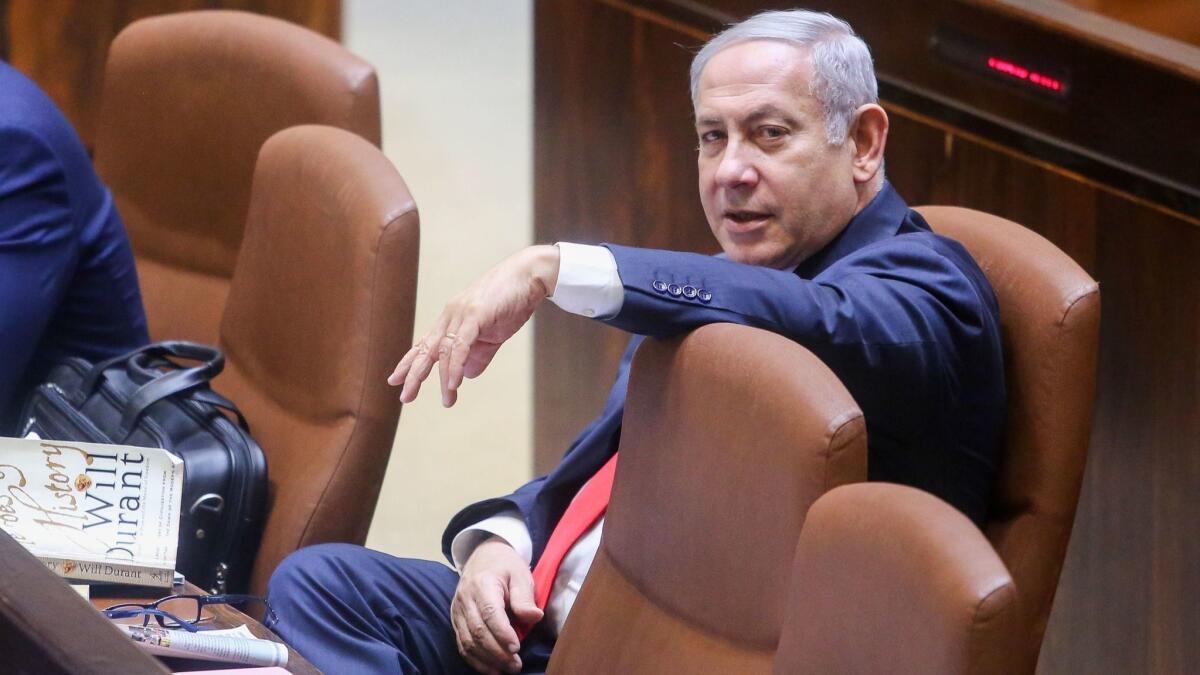
What now?
At the end of an emergency meeting Thursday that included four senior ministers and two Druze coalition lawmakers, Netanyahu declared that “the law will not be changed,” but that he will “formulate a plan that expresses Israel’s deep commitment to the Druze public.”
This did not mollify the Knesset members who filed the Supreme Court appeal, who said it would not be withdrawn “until the injustice has been rectified.”
Netanyahu scheduled another meeting Friday with Druze dignitaries, including the spiritual leader of the Israeli Druze, Sheik Muwafaq Tarif, and an upcoming round of calls to Druze army officers.
Meeting opposition leader Tzipi Livni on Thursday, Tarif said that Israel’s Declaration of Independence, which guarantees equality for all citizens and has a quasi-constitutional status, “is the solution for everyone.”
“We are proud of the state and we die on its behalf,” Tarif said, referring to the hundreds of Druze who have died in battle. “Everybody is asking why this happened to us.”
Tarnopolsky is a special correspondent.
More to Read
Sign up for Essential California
The most important California stories and recommendations in your inbox every morning.
You may occasionally receive promotional content from the Los Angeles Times.

